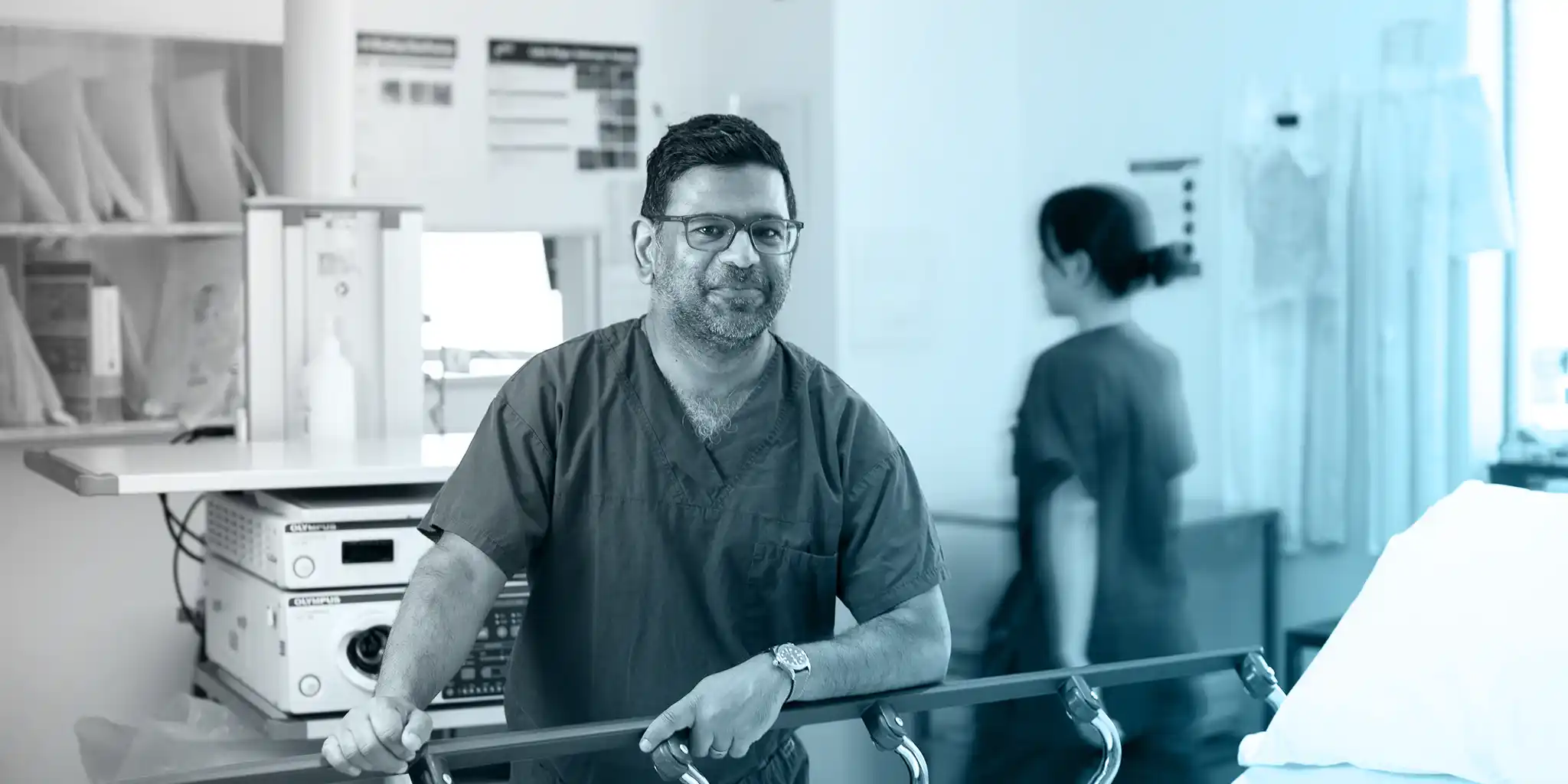Endoscopy
Gastroscopy and colonoscopy are procedures designed to examine the inside of the stomach or large bowel, to safely investigate and diagnose the cause of many different types of gut problems. These “endoscopy” procedures are generally performed under a light anaesthetic (sedation) administered by an anaesthetist and involve minimal or no discomfort to the patient. Recovery times are rapid with modern anaesthetic techniques and most patients can return to work the following day.
Gastroscopy is a procedure where the doctor inserts a thin flexible instrument called a gastroscope through the mouth allowing direct inspection of the oesophagus (gullet), stomach and duodenum (upper small bowel) by way of a tiny digital lens on the end of the scope. Biopsies or therapeutic procedures such as oesophageal dilatation or variceal banding can be performed at the time of gastroscopy.
Colonoscopy – examination of the large bowel (colon) using a colonoscope, a thin flexible instrument with a digital lens on the end. The lining of the large bowel and the ileum (the part of the small bowel which attaches to the large bowel) can be examined, and biopsies can be taken if needed. Procedures such as excision or removal of polyps (see below) or argon photocoagulation (APC) can be performed at the time of the procedure, if needed.
Colonic polyps
Polyps are small growths within the large bowel which have the potential to turn into bowel cancer in the long term. Polyps are often under 1 cm in size, however they can be larger than this. Common types of polyps include tubular adenomas, tubulo-villous adenomas and sessile serrated lesions. If colonic polyps are detected at colonoscopy, these can be excised or removed during the procedure using a special endoscopic snare, either with diathermy (“hot snare”) or without diathermy (“cold snare”). This is termed ‘polypectomy’. Excising polyps has been shown to reduce the risk of bowel cancer in the long term.
Direct endoscopy
At Universal Gastroenterology, we are happy to receive referrals for “direct-access endoscopy” or “rapid-access endoscopy” for straightforward indications, please contact us for further information
Advanced procedures
Dr Gupta can liaise with his interventional colleagues to organise advanced procedures in Melbourne if needed, such as capsule endoscopy, endoscopic ultrasound (EUS), endoscopic retrograde cholangio-pancreatography (ERCP), endoscopic mucosal resection of large colonic polyps, treatment of achalasia (e.g. pneumatic dilatation, per-oral endoscopic myotomy a.k.a. POEM) and balloon-assisted small bowel enteroscopy. In addition, 24-hour pH testing and oesophageal manometry can be easily organised. Your specialist will explain these procedures in detail if they may be suitable for you.
